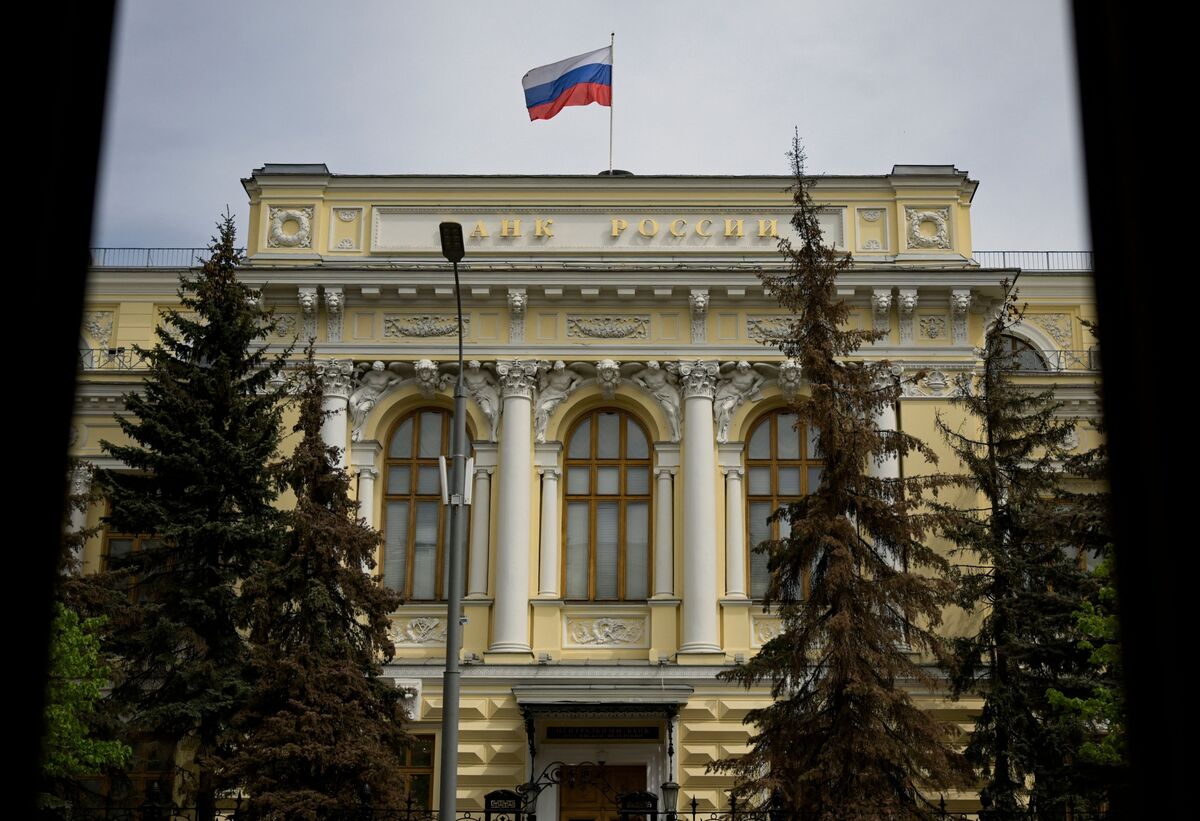Amidst the aftermath of Russian President Vladimir Putin’s global war, economist Alexander Savchenko forecasts a shift in the status of Russia’s frozen assets to full confiscation. Speaking on the FREEDOM TV channel, Savchenko highlighted the unprecedented nature of this move for Europe, emphasizing that the world has limited experience in confiscating sovereign assets, with the United States being the primary precedent.

Photo from Bloomberg.com
Unprecedented Decision Expected at G7 Meeting
Savchenko anticipates a landmark decision at the upcoming G7 meeting, where the status of frozen Russian assets could evolve into outright confiscation. He draws parallels with previous U.S. actions in Afghanistan, Iraq, and Venezuela, where confiscated assets were transferred to opposition forces deemed fair by the Americans.
Noting that Russia has approximately $300 billion in frozen assets in the West, with a significant portion in gold and foreign exchange reserves, the economist suggests that the G7 might make a decisive move within the next month.
The focus, according to Savchenko, is on formulating an optimal mechanism for transferring the confiscated funds to Ukraine, aiming to support Ukraine’s efforts for a swift victory in the ongoing conflict.
Global Response to Russian Aggression
The global response to Putin’s war has seen widespread condemnation, with various countries, including Germany, blocking Russian funds. Germany alone claims to have frozen over 4 billion euros of Russian assets.
Savchenko’s forecast underscores the international community’s search for appropriate measures in response to Russia’s actions, with the G7 potentially setting a significant precedent for handling sovereign assets in times of conflict.
The unfolding situation highlights the evolving economic repercussions of Russia’s military actions and the challenges faced by the international community in crafting effective responses to unprecedented scenarios.
























